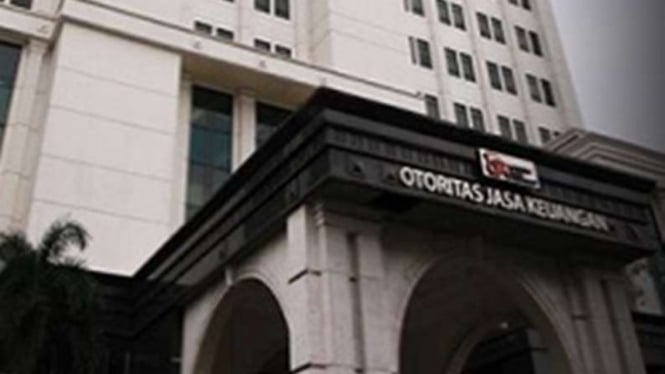OJK Requires Commercial Banks to Publish Loan Interest Rates
- Website OJK
Jakarta, VIVA – The Financial Services Authority (OJK) has issued OJK Regulation (POJK) Number 13 of 2024 concerning Transparency and Publication of Prime Lending Rates for Conventional Commercial Banks (SBDK BUK).
Aman Santosa, Head of the Financial Literacy, Inclusion, and Communication Department at OJK, explained that this regulation aims to strengthen the implementation of the governance principles of SBDK, and it fulfills one of the mandates of Article 8A of Law Number 7 of 1992 on Banking, as most recently amended by Law Number 4 of 2023 on Financial Sector Development and Strengthening.
"This regulation requires commercial banks to be transparent about interest rates (cost of funds, margins, and overhead costs) to encourage efficiency in the determination of bank interest rates, thereby supporting economic financing," Santosa said in a statement on Monday (August 26).
Ilustrasi transaksi perbankan.
- VIVAnews/Ikhwan Yanuar
He detailed that this POJK on SBDK covers several areas, including:
1. SBDK serves as an indication of the lowest effective interest rate, reflecting the Cost of Funds for Loans (HPDK), overhead costs, and margins, which are then used as a reference in setting loan interest rates.
2. The format for SBDK publication is more informative, with the announcement of each component that makes up the SBDK (i.e., HPDK, overhead, and margin) and the addition of more detailed SBDK categories for the MSME sector (i.e., publication of medium and small business loans).
3. In preparing the SBDK, BUK should consider the benchmark interest rates set by the relevant authorities and economic conditions.
4. BUK should take into account consumer protection aspects by notifying customers of interest rate changes and the conversion from flat to effective rates in the offering letter.
5. The submission of SBDK reports to OJK should be more detailed and validated with an integrated OJK-BI-LPS report, which consists of:
a) Cost of Funds for Loans (HPDK), which includes the cost of third-party funds (i.e., current accounts, savings, and deposits) and non-third-party funds.
b) Overhead costs, including human resource costs at BUK, credit-related promotion costs, and asset depreciation.
c) Margin set by BUK in credit disbursement activities, considering the target Return on Assets (ROA) that the bank aims to achieve according to its business plan after taking into account taxes and ensuring the bank's ongoing concern.
6. Announcement to the public whenever there is a change in the SBDK determination.
7. Submission of detailed SBDK reports to OJK no later than the 15th of each month for the position at the end of the previous month.
8. Gradual penalties for incorrect SBDK announcements, including fines of up to IDR 15 billion.
9. Certain authorities granted to OJK, including adjustments to SBDK and SBK based on specific considerations.
10. The announcement of the SBDK Publication Report and the submission of the SBDK Detailed Report will take effect starting from October 2024 data.
11. The POJK comes into effect upon enactment.
"The issuance of POJK SBDK is expected to improve the governance of SBDK calculation, announcement, and reporting, in order to enhance comparability, consumer education and protection, as well as the transmission of monetary policy," he concluded.


































